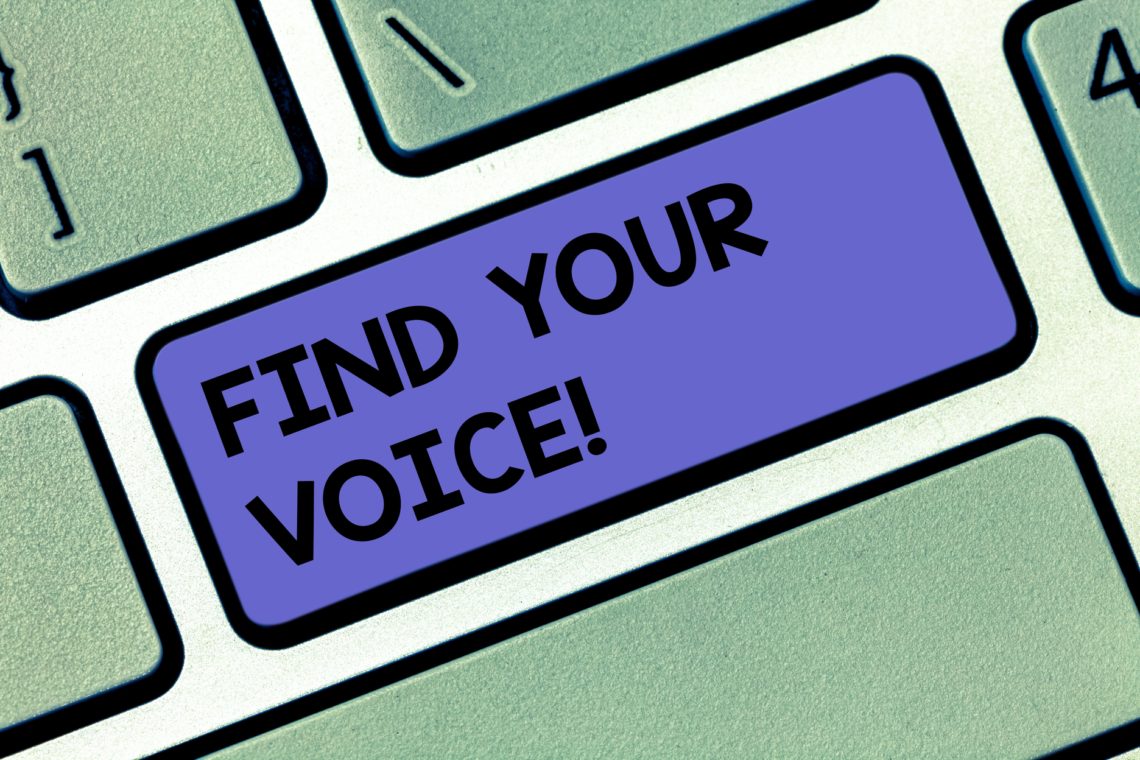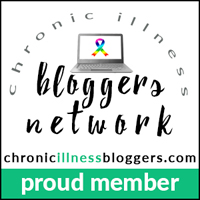Vocal problems can occur for people with all types of conditions — Parkinson’s disease, muscular dystrophy, stroke. Acute laryngitis is very common while chronic laryngitis affects over 20% of the population.
Christine received a diagnosis of spasmodic dysphonia and now experiences some relief with botox shots. Hanna, who has SMA type 1, uses assistive technology to help her communicate. Check out her website to watch a video demonstrating how she uses the technology.
Transcript
welcome to glass half full with leslie krongold she shares her stories experiences and knowledge of living and coping with a chronic health condition learn about tools and resources and hear inspirational interviews that help you to live a life filled with quality and dignity with two decades of support group leadership leslie’s ready to help you make lemonade out of life’s lemons are you ready are you ready
hello and welcome to the podcast i’ve been toying with this topic of vocal problems for a while but after being sick for three weeks and not being able to communicate verbally for much of that time i realized it was time to tackle the topic
i have a couple of guests i’ve interviewed no experts no speech therapists just people who have shall we say challenges using their voice to communicate a lot of people experience this at some point in their lives for example laryngitis there was acute and chronic laryngitis the only factor that i could find was for chronic laryngitis which stated that 21 of the population may develop chronic laryngitis that’s really surprising so i’ll assume that a much larger percentage of people will experience acute laryngitis i certainly have laryngitis is an inflammation of your larynx or voice box it happens from overuse irritation or infection your vocal cords are within your voice box and are vital to your breathing swallowing and talking
all i know is that when i have some type of respiratory condition i have difficulty speaking because i cough and choke and if i’m able to squeak out a few words they’re really hard to hear and understand i also suppose men difficulty is more related to having a muscle disease which affects my breathing swallowing and talking and by the way chiquita is making noise in the background um she doesn’t like when i talk about problems of any kind so just ignore her she’ll stop after a while thankfully i’ve recovered but i know my voice is weakened and i notice this if i listen to my earlier podcast episodes from three years ago
in the past three weeks i curtailed much of my interaction with humans except for my spouse i found some relief using a couple of technology tools one is using the text to speech feature in microsoft word when i had something substantive to communicate i sat at my computer composed the lengthy message and had jessica sit down and listen to one of four assistants communicate for me you’ve been listening to samantha
but perhaps you’d rather listen to victoria victoria speaks a little slower though there is a pacing feature available for each of the voices to mix things up no one says i can’t have alex speak for me or fred fred likes to speak for me too but sometimes i just want to shut him up shut up read okay
sitting in my computer can get to be a drag so there is a text-to-speech feature in notes on my iphone this can come in handy but be careful about spell check because it could make communication efforts even more difficult
so that’s how i got around for three weeks how do others do it vocal problems exist for others with neuromuscular disease parkinson’s disease stroke and a number of other conditions you’ve likely never heard of my friend christine who is a retired nurse and writer shares her story of getting an accurate diagnosis for her vocal problems
when did you notice something was unusual with your voice was it a a dramatic change did it happen gradually or did someone bring it to your attention i think maybe eight to ten years ago i noticed that my voice was different and it was very gradual no one else brought it to my attention but when i described it to my primary care physician she immediately said she knew what i was talking about so it was clear to her that something was going on and was she the one who diagnosed you no she referred me to an ear nose and throat doctor i think now they call them head and neck surgeons but that was the first step of a pretty long process trying to get diagnosed oh really so what did they first what did the ear nose and throat doctor think well the first one thought that it was probably either acid reflux or allergies and he prescribed a neti pot as you know sinus rinse device and medications for acid excess acid and that didn’t really make a big difference at all so um i you know my primary care physician moved on and i had a different one and she sent me to another ent doctor who sent me to a speech therapist he said i had some later i found out that he called it dysphonia but he didn’t tell me that he just said i’m going to send you to a speech therapist who can help you correct your speaking and so she saw me for about 10 or 12 sessions and she never mentioned spasmodic dysphonia and i didn’t see a lot of improvement i i hung in there because i thought maybe it was helping but it didn’t seem too really
well she just had me breathe breathe more effectively from my abdomen and make sure that i was really projecting my voice and leaning forward and she had me do different sound exercises that she said might help and i didn’t notice any change really and then one day i was talking to a friend and and she is in ohio and she told me that this npr radio personality diane reem sounded a lot like me and that she had this condition so i mean you know she couldn’t remember the name of it but that she had talked a lot about having some voice condition so i went into sleuthing mode and i eventually found diane riemann that she had spasmodic dysphonia and there is a national association that that deals with spasmodic dysphonia at dysphonia.org and i went there and i listened to some they have sample voices there on the website and i was just so stunned because it was like listening to myself so i um i sought out i on the website they because this condition only affects um they estimate about 50 000 people in this country so a lot of doctors haven’t really run into it in their practices so on their website they list doctors who have some knowledge of the condition so that’s how i got finally an official diagnosis and i started the treatments with botox which help with the the spasms that occur with this condition it’s a neurological thing that causes spasms in the muscles of the larynx that cause the voice to sound quite strained and the botox actually relaxes and paralyzes those muscles and doesn’t really for me work too well but it’s a small improvement and the the downside with botox is that you have a period where your voice is very soft and kind of breathy and i just had a treatment about two weeks ago so i’m in that phase right now how long does it last when do you how frequently do you get the shots
well this condition is not predictable everyone seems to have a different reaction they don’t have a specific dosage that they recommend for everyone so they start you out usually with a very small dose and then depending on how that works they increase it and people have quite different reactions some people go can only it only lasts for a month or two other people it lasts six months for me it seems like it’s two to three months that it lasts and it’s for me not a perfect treatment my current doctor who has a lot of experience with this told me that i have both spasmodic dysphonia and a vocal tremor and the botox only helps the spasmodic dysphonia which causes breaks in the voice but it so the botox helps the breaks but it doesn’t help the tremor so it’s only partially effective for me what if anything helps the tremor
nothing that i’ve found and so you went to a support group can you tell me about that you know what you know was it helpful the experience do you continue to go um yes i go whenever i can i think it’s because this condition is not very well known people who are diagnosed are really eager to talk to others who have it and find out how they’ve coped with it and what has helped and what hasn’t and which doctors have been helpful and which have not so i found it to be really good um we share our experience with whatever treatment protocol you know the frequency and the amount of botox and we talk about tools that we can use to minimize the impact of of the condition so yeah i i can’t think of anything negative about going it’s been really helpful for me when are some of the tools that you mentioned well for example the let me think the center for independent living in berkeley and alameda they have you can get a special telephone that helps you be heard better i haven’t tried it yet so i can’t speak to exactly what it does but they’ve been working on the technology for not just this condition but for many conditions related to voice and being able to be heard on the phone and so that was we had a speaker come who talked about that oh sometimes we do relaxation sessions and we’ve had speech therapists come who recommend certain practices when you’re trying to project your voice more effectively so that kind of thing that’s great does anybody know why it happens all of a sudden because i mean you spent right most of your life without it until wouldn’t you say about eight years ago yeah yeah um they don’t know what causes it some people actually get it as teenagers others it’s more commonly it more commonly develops in middle age and and older middle age and older they don’t really know there is a fair amount of research and the national association i mentioned is trying to fund some of that research i participated in a program through ucsf where they’re trying to look at what the causes are and you know determine how to address the problem more effectively you come from a large family none of your siblings have have this condition no no okay i i don’t know anyone else um in my family and you had told me some famous people who were the famous people you mentioned
well diane reim is one of them scott adams the cartoonist is one
susan collins the senator from maine if you listen to her you can hear the breaks and the hesitation in her voice john f kennedy jr the let’s see i guess he’s the son of robert kennedy he has it yeah that’s pretty good for having such a rare condition to have all these famous people i i you know my disease there’s no one famous so oh no really oh that’s funny i’m sure there are famous people they just i don’t know maybe because they’re not using their voices they can hide out more effectively
recently i read a blog post by a neurologist who had to leave for medical practice due to her advanced parkinson’s disease one of her symptoms hypophonia affects her voice making it soft and difficult to hear she’s been able to resolve this with an increase in medication of the vodopa and speech therapy
earlier this year i was at a seminar given by our local muscular dystrophy association office in san francisco i had the opportunity to meet a young woman with sma spinal muscle atrophy named hannah eid hannah was one of the presenters and discussed how she opened an able account an able account is a tax advantage savings account for individuals with disabilities and their families and these were created as a result of the passage of the stephen beck jr achieving a better life experience act of 2014 and abel able is the acronym i wasn’t so interested in the able account but what made hannah’s presentation so memorable is that she used computer technology to deliver it here’s a brief interview with hannah
at what age were you unable to use your voice
i have had a trick in ventilator since i was six months old so i’ve never been able to speak locally ever i’ve been using some sort of communication device ever since i was three years old and how old are you now
i’m 22. and so can you tell me about the technology that you use now to help you communicate
i use a communication device called adobe i use a switch with my right hand and it scans around the screen and i select the button i want
you select the button with your finger
yes and is this the same technology you used when you were a child or has it changed
i’ve been using a tobii device since january of 2018 and i absolutely love it it’s also a computer and that’s really cool because i don’t have to use laptop anymore before i use a device called dynavox and i could use any pc computer with a remote control code and access it and it was great for having a communication device and a computer in one is so convenient i also don’t feel limited vocabulary wise because the toby has great word prediction whereas with the dynavox i had preprogrammed words and the spelling prediction wasn’t great i do have set up pre-programmed phrases on my topi so i can talk quickly otherwise i type it out which takes more time but it’s worth it as you can see i like to talk well that so that’s wonderful that the technology has improved and it’s just helped you create uh you know be able to communicate more clearly and naturally
absolutely
so i didn’t have any more questions would you like to add anything
i do freelance web development so if you know anyone who needs the website i’m your gal okay so maybe you can send me a link to your website through facebook and i can include that of course
thank you so much for having me leslie you’re welcome i appreciate it hannah and i will see you on facebook
have a nice day thank you you too bye bye
although we each have different conditions we share a similar symptom albeit to varying degrees the big takeaway for me is that we can learn from each other we can learn about coping mechanisms assistive technologies and other resources tools or hacks thank you to christine hannah and that doctor with parkinson’s for sharing your stories
thank you for listening to glass half full leslie invites you to leave a rating and review on itunes this helps spread the word to others dealing with chronic health issues for show notes updates and more visit the website glass half full dot online glass half full dot online





